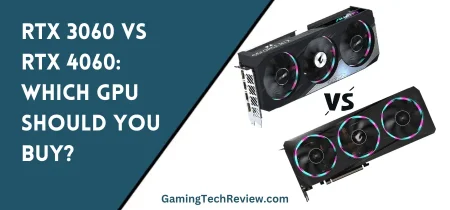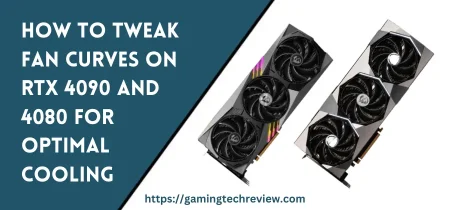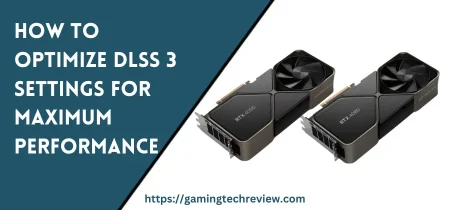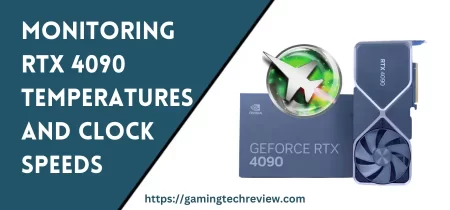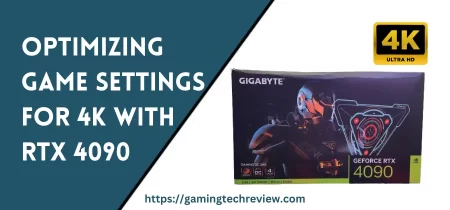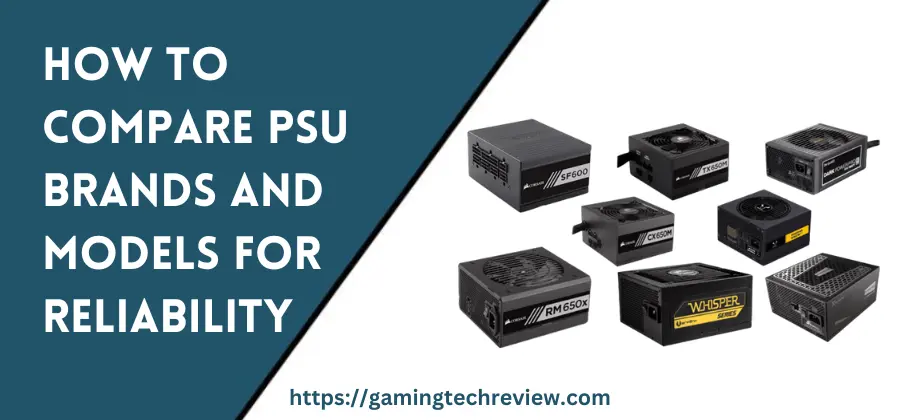
Choosing a reliable power supply unit (PSU) is one of the most important decisions when building or upgrading a desktop PC. The PSU must convert the 120V or 230V alternating current (AC) from your wall outlet into several DC voltages that power all your computer’s components. An unreliable, low-quality PSU can negatively impact system stability, damage hardware, or even potentially cause fire hazards in severe cases.
With so many PSU brands and models available, thoroughly researching and comparing key factors will help identify options that offer the best reliability:
PSU Brand Reputation
The reputation and track record of the PSU brand provides insight into expected reliability and quality:
- Company History – More experienced brands that have specialized in PSUs for many years often have greater reliability. For example, SeaSonic has over 50 years in the industry.
- Specialization – Companies focused specifically on PSUs tend to put more engineering into maximizing quality versus those who make many types of products.
- Builder Community Reputation – Check PSU brand satisfaction, trust and issues at communities like Reddit’s r/buildapc forum. Watch for repeated complaints about defects or failures.
- Past Quality Issues – Some brands have had widely reported quality control problems with certain models that led to recalls or revisions. See if the company addressed concerns.
- Country of Manufacture – Taiwan, Japan and some European countries have excellent reputations for electronics manufacturing quality. Be cautious with brands made in China.
Some well-regarded PSU brands known for their reliable, high-performance units include Corsair, SeaSonic, EVGA, be quiet!, Cooler Master, Antec, Super Flower, Thermaltake and Fractal Design. Do further research into any brands that seem questionable.
80 PLUS Efficiency Certification
The 80 PLUS program is an important certification that tests and verifies the electrical efficiency of PSUs. Efficiency refers to how much of the incoming AC electricity is converted to usable DC power, rather than lost as heat waste. Higher efficiency reduces electricity costs, less heat generation, quieter operation, and correlates strongly with reliability:
- 80 PLUS White – 82-85% efficiency at 20%, 50% and 100% load.
- 80 PLUS Bronze – At least 85% efficiency. Minimum for entry-level gaming PCs.
- 80 PLUS Silver – 87-90% efficiency. The current price/performance sweet spot.
- 80 PLUS Gold – 90-92% efficiency. Recommended for high-end systems.
- 80 PLUS Platinum – 92-94% efficiency. Very efficient but with higher costs.
- 80 PLUS Titanium – 94-96% efficiency. Premium cutting-edge models.
So an 80 PLUS Gold PSU will generally be better quality and more reliable than a basic 80 PLUS unit. But also consider costs – a Bronze unit from a top brand could outperform an inexpensive no-name Gold unit.
Power Output Specifications
The published power output specs indicate the PSU’s overall capacity and ability to provide enough stable power for your specific components:
- Total Wattage – Select a PSU with enough wattage to meet your build’s estimated maximum power draw, with at least 100-150W of extra headroom.
- +12V Rail Amperage – The key 12V rail must handle power-hungry modern CPUs and GPUs. Quality PSUs deliver their advertised amps.
- +5V and +3.3V Rail Amperage – Still needed to power fans, SSDs, HDDs, RGB lighting, USB devices and accessories.
- Peak Power Output – Brief power surges on the +12V rail, important for power-hungry GPUs.
Higher quality PSUs from reputable brands will deliver their advertised power specifications continuously at rated temperatures. Cheaper units often exaggerate ratings or fail to maintain them under operating loads.
Internal Components
Premium PSUs use higher-end internal parts that impact reliability:
- Japanese capacitors (Nippon Chemi-Con, Nichicon, Rubycon etc.) – Known for performance, longevity and reliability.
- Tight Voltage Regulation – Maintains stable voltages to components despite shifting loads.
- High-quality ball bearing fans – Dual ball bearing fans last over 60,000 hours. Sleeve-bearing fans wear out sooner.
- Minimal Ripple and Noise – Cleaner and smoother DC output with less interference on sensitive components.
- Modular Cables – Only plug in the cables your build needs for tidier cable management.
- Single +12V Rail Design – Easier to balance power delivery for high-end GPUs and CPUs.
- Long warranties – 5 years or longer indicates reliability and manufacturer confidence.
See Also: How to Verify Your PSU Has Enough PCIe Power Connectors for the RTX 3060
Safety Protections
Advanced protection circuits help prevent catastrophic failures:
- Over Power Protection (OPP) – Shuts down if power draw exceeds safe thresholds.
- Over Voltage Protection (OVP) – Turns off if voltages exceed safe levels.
- Under Voltage Protection (UVP) – Shuts down if voltages drop too low under load to prevent damage.
- Over Current Protection (OCP) – Prevents excessive current flow from damaging PSU.
- Over Temperature Protection (OTP) – Shuts down before overheating causes damage.
- Short Circuit Protection – Immediately shuts off all power if short detected.
- Surge Protection – Helps protect components from sudden power spikes.
- Inrush Current Limiting – Reduces initial current surge during power-on.
Reputable brands design protections to safely power down, rather than fail dangerously when limits are exceeded. Cheaper PSUs may lack protections or use lower-quality components that react slower.
Certifications
Legitimate safety certifications help validate quality, safety and performance:
- 80 PLUS – As mentioned earlier, confirms efficiency claims through independent testing.
- UL – Confirms safety for the North American market.
- FCC – Verifies electromagnetic emission compliance, minimal interference.
- CE – European standards for safety, EMI and environmental.
- TUV – Respected German national safety and quality certification.
- CCC – Mandatory certification for sales in China.
- RoHS – Restriction of Hazardous Substances compliance.
- ISO 9001 – International standardized quality management system.
Carefully research certifications – some brands fake them or get little-known labs to rubber stamp.
Professional Reviews
In-depth reviews from well-known PC hardware sites provide valuable real-world testing:
- Tom’s Hardware
- AnandTech
- TechPowerUp
- KitGuru
- JonnyGuru
- Hardware BBQ
Look for testing of voltage regulation, ripple, noise levels, efficiency, temperature levels, and protection reliabilities under various loads. Reviews by experts who disassemble PSUs provide insights into overall build quality and internal components versus advertised specs. This can reveal potential reliability or safety issues to be aware of.
Warranties and Support
Longer warranties indicate the manufacturer has more confidence in long-term reliability:
- Budget PSUs often only come with 1-3 year warranties.
- Quality mid-range models typically offer 5-7 years of coverage.
- Premium PSUs boast warranties of 10 years or even lifetime warranties.
Also research the brand’s reputation for technical support and how they handle returns and repairs for defective units. Good customer service provides peace of mind if any issue arises. Brands like Corsair and EVGA are known for responsive support networks.
Right-Sizing Your PSU
Choosing the ideal PSU wattage prevents either underpowering your components or grossly overspending on more capacity than needed.
Use online PSU calculators to add up your exact components and estimate full system power draw under load – CPU, GPU, drives, cooling, overclocking, accessories etc. Then add at least 100-150 watts extra headroom minimum.
Getting a properly sized quality PSU ensures it runs efficiently with lower stress for higher reliability. For example, a 550W-650W Gold unit will sufficiently power most mid-range single GPU gaming builds. Higher-end multi-GPU, CPU workstation systems need 750W+ units.
By thoroughly researching PSU brands, features, reviews and certifications, you can make an informed choice best suited for your particular build and budget. Investing in a well-built, efficient PSU from a reputable brand provides peace of mind and protects your valuable components.






